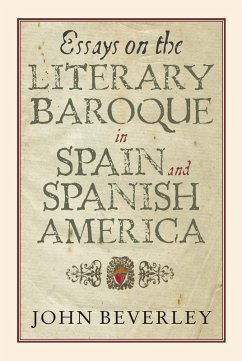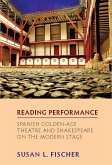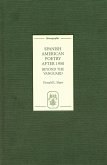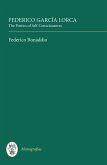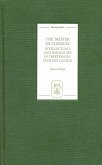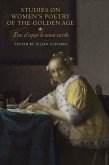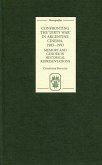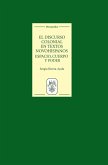The continuing importance of the Baroque in Spanish and Latin American culture.
The Hispanic Baroque is a Janus-faced phenomenon, one of its faces peering at the sunset of feudalism, the other at the dawn of European modernity. This collection of essays seeks to engage with this paradox and its consequencesfor understanding Spanish and Latin American literary and cultural history. Conceived in response to Roberto González Echevarría's influential Celestina's Brood: Continuities of the Baroque in Spain and Latin America, and spanning many years of Beverley's own intellectual trajectory, it includes material already in the public domain, together with much that is new, previously unpublished or long unavailable. An Introduction outlines the ongoing scholarly discussion about the nature of the Baroque in both Spain and Spanish America. The essays deal respectively with Luis de Góngora's Soledades; the picaresque novel; the Baroque pastoral; Gracián's theory of "wit" andthe equation of wit and power; and the relation among Baroque writing, colonial hegemony, and the formation of a criollo culture in Spanish America. A section on Baroque historicism suggests some ways of using the Baroqueto reflect on our contemporary situation, and the volume concludes with a wide-ranging conversation about the Baroque and Hispanism between the author and Fernando Gómez Herrero, a young scholar strongly influenced by postcolonialstudies.
JOHN BEVERLEY is Professor of Spanish and Latin American Literature and Cultural Studies at the University of Pittsburgh.
The Hispanic Baroque is a Janus-faced phenomenon, one of its faces peering at the sunset of feudalism, the other at the dawn of European modernity. This collection of essays seeks to engage with this paradox and its consequencesfor understanding Spanish and Latin American literary and cultural history. Conceived in response to Roberto González Echevarría's influential Celestina's Brood: Continuities of the Baroque in Spain and Latin America, and spanning many years of Beverley's own intellectual trajectory, it includes material already in the public domain, together with much that is new, previously unpublished or long unavailable. An Introduction outlines the ongoing scholarly discussion about the nature of the Baroque in both Spain and Spanish America. The essays deal respectively with Luis de Góngora's Soledades; the picaresque novel; the Baroque pastoral; Gracián's theory of "wit" andthe equation of wit and power; and the relation among Baroque writing, colonial hegemony, and the formation of a criollo culture in Spanish America. A section on Baroque historicism suggests some ways of using the Baroqueto reflect on our contemporary situation, and the volume concludes with a wide-ranging conversation about the Baroque and Hispanism between the author and Fernando Gómez Herrero, a young scholar strongly influenced by postcolonialstudies.
JOHN BEVERLEY is Professor of Spanish and Latin American Literature and Cultural Studies at the University of Pittsburgh.
Dieser Download kann aus rechtlichen Gründen nur mit Rechnungsadresse in A, D ausgeliefert werden.

